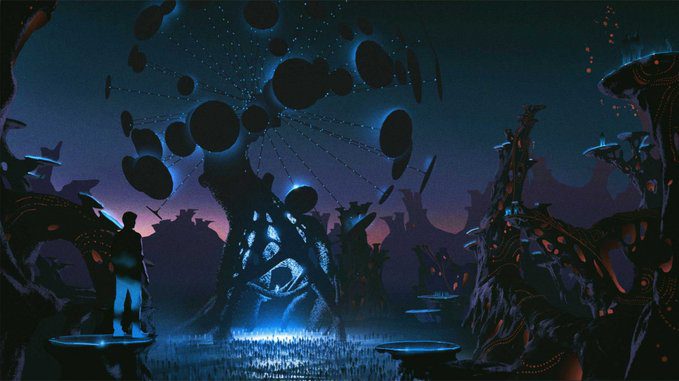Digital Immortality in Sensorium Galaxy
The concept of digital immortality in Sensorium Galaxy is a fascinating leap in the realm of artificial intelligence and the metaverse. Unlike traditional digital copies of users, the virtual beings in Sensorium Galaxy are autonomous creatures. These beings are enabled with sophisticated AI tools, allowing them to live forever inside the metaverse. This innovative approach signifies a shift from mere digital replicas to fully autonomous entities that can interact, evolve, and exist independently of their human creators.
AI and Digital Resurrection
The idea of digital immortality is not entirely new. In China, companies like Super Brain and Silicon Intelligence are using AI to digitally resurrect the dead. These firms specialize in creating AI-generated avatars of deceased individuals, allowing mourners to interact with their lost loved ones in virtual reality. This technology raises significant ethical questions, particularly regarding consent and the psychological impact on bereaved individuals. For more details, you can read about how Chinese mourners use AI to digitally resurrect the dead.
AI and Death: Exploring Our Digital Afterlife
At the Sundance Film Festival, several films have grappled with the concept of our digital afterlife. Companies like Microsoft, Amazon, and SiriusXM are exploring AI-powered services that allow communication with avatars of deceased loved ones. This trend highlights the growing interest in digital immortality and the ethical implications of using AI to emulate personalities and memories. The advancements in robotics and large-language models like ChatGPT are paving the way for more sophisticated and emotionally resonant digital interactions. For more insights, check out the article on AI and death: Sundance films grapple with our digital afterlife.
Digital Avatars in Entertainment
The entertainment industry is also embracing digital immortality. The iconic rock band KISS has entered the realm of digital avatars, allowing them to perform ‘eternal’ concerts. These digital avatars, created using AI and machine learning, offer fans a chance to experience live performances even after the band members have retired. This innovation is a testament to the potential of AI in transforming the entertainment landscape. For more information, read about how KISS bids farewell at Madison Square Garden: Enters digital avatars for ‘Eternal’ performances.
Generative AI in the Metaverse
Meta is planning to bring generative AI technology into metaverse games, specifically VR, AR, and mixed reality games. This move aims to create new consumer experiences with gameplay that changes every time you play. The integration of generative AI could significantly improve workflow and time-to-market for game developers, allowing for more dynamic and evolving game worlds. This innovation aligns with the growing trend of integrating AI into various industries, including gaming. For more details, visit the article on Meta plans to bring generative AI to metaverse games.
AI and Spiritual Communication
The concept of using AI for spiritual communication is another intriguing development. According to a prediction by Nostradamus, AI will eventually contact the dead. This speculative idea has sparked interest in the potential societal and spiritual implications of AI technology. For more on this topic, read about the Living Nostradamus’ chilling prediction: AI will contact the dead.
Related Articles
- Exploring the unmatched experiences in AI worlds gaming
- This contact lens can display digital content using augmented reality
- The new relationship between creators and beta character AI
- Transform your ideas into stunning images with Segmind Vega on InferiumAI
- Embrace the future with StarryAI: The AI and meme revolution
Looking for Travel Inspiration?
Explore Textify’s AI membership
Need a Chart? Explore the world’s largest Charts database
